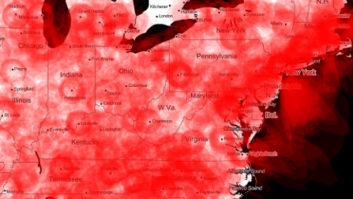It appears the new rules implementing the Local Community Radio Act become effective Jan. 10, 2013.
That’s unless the new rules are stayed for some reason. Jan. 10 is also the deadlines to file any petitions for reconsideration.
Federal Register publication of the Nov. 30 FCC actions on LPFM and FM translators triggered the effective date.
Commission officials said at the meeting they intend to soon release a public notice detailing the deadlines by which pending FM translator applicants that have more applications than allowed under the new caps must choose which of their applications to pursue. The FCC would dismiss the rest.
More than 13,000 applications were filed in the 2003 window; 97% of those filed fewer than 50 applications. However the remaining three percent accounted for a total of more than 8,000 applications, with Radio Assist Ministries and Edgewater Broadcasting topped the list before the agency adopted a cap of 10 applications for each company in 2007.
The agency most recently proposed a national cap of 50 applications and a one-per-market local cap on the processing of pending FM translator applications to limit trafficking.
We’ve reported five applicants filed petitions for reconsideration: Educational Media Foundation, which self-winnowed its applications down to 300 from 500. Hope Christian Church and Calvary Chapel, Connor Media, Western North Carolina Public Radio and Kyle Magrill also filed petitions for reconsideration.
LPFM advocates Prometheus Radio Project and REC Networks argued against the petitions for reconsideration, with the aim of ensuring there’s enough spectrum for the low-power stations in spectrum-limited markets.
In its latest decision, the FCC raised its national cap to 70 so long as no more than 50 applications are in spectrum-limited markets. The agency also increased the per-market cap from one to three applications in spectrum-limited markets subject to certain conditions.
The commission also clarified how it will handle processing of FM translator applications in embedded Arbitron Radio Metros. The FCC intends to treat each embedded market as a separate market for the purposes of the per-market cap.
“For example,” details the text, “the San Francisco market (Arbitron Metro market #4) includes the San Jose (Arbitron Metro market #37) and Santa Rosa (Arbitron Metro market #122) embedded markets. Accordingly, the per-market cap would apply to each of three markets: (1) The core San Francisco market (consisting of Alameda, Contra Costa, Marin, Napa, San Francisco, San Mateo and Solano Counties); (2) the San Jose market (consisting of Santa Clara County); and (3) the Santa Rosa market (consisting of Sonoma County). Thus, an application for a translator in San Jose would not count against the per-market cap for that applicant in either the core San Francisco market or the Santa Rosa market.”
The upshot? One company could pursue three applications in each of the three markets.










